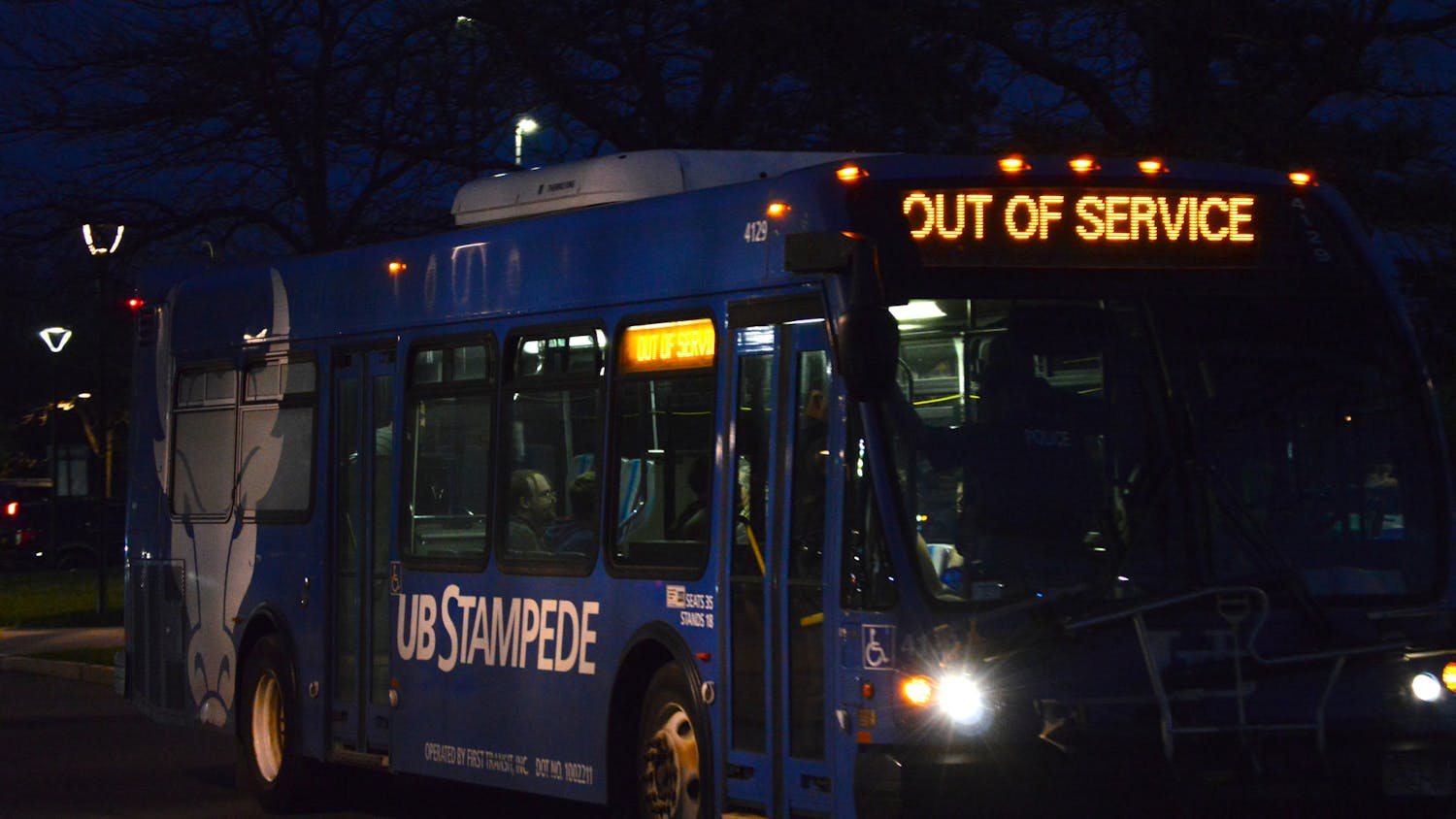"A Streetcar Named Desire," the final installment of Studio Arena Theatre's Tennessee Williams retrospective, is nothing short of exhilarating.
Although the production stalls at some points due to choices made in the lighting (for example, having the theater bathed in full darkness every few scenes makes it difficult to keep one's mind on the production) and one or two scenes that seem out of place (such as Blanche's (Susan Wands) attempt to seduce a young messenger boy), this piece is one of Studio Arena's best productions ever. No one involved in this play would be out of place working in one of the major theater capitals of the world, whether Broadway or London's West End.
"Streetcar" is a tale of misunderstanding, love and manipulation. Taking place shortly after the end of World War II, it represents a shift in American drama. Along with Arthur Miller's "The Death of a Salesman," Robert Rutland (Studio Arena's Education Director) calls "Streetcar" one of the "great plays of American literature."
Whether your knowledge of the play comes from productions seen elsewhere, Elia Kazan's 1951 film version (starring Marlon Brando), or even just the episode of "The Simpsons" where Marge found herself playing the role of Blanche DuBois, you will not be disappointed with Studio Arena's version of the play.
As Stanley Kowalski, Ted Koch gives a performance in which he is both animalistic and tender. Kowalski clearly adores his wife but is just as clearly torn by his reactions to her sister.
Examples of his brilliant performance abound; not only does he hit his mark on the scenes best known by those who have only heard of the performance (his heart-rending, bone-chilling cry of "Stella!" for one) but with his imposing physique and clear mastery of the movements of his own body, he seems to be acting with every ounce of himself. He brings sympathy to a character that could easily be played as a brutish stereotype. Because we see Stanley's humanity, we can feel the cut of his sister-in-law's cruel words all the more as she pronounces him "apelike" and "common."
In the complicated and layered role of Blanche DuBois, Wands' fluttering about the stage and ability to render so realistic a mercurial temperament, which she injects with humor and sardonic inflections, is truly inspired. While Blanche is a very difficult character to sympathize with, Wand somehow manages to grate just enough to make the audience realize how much pressure her presence puts on Stanley. At the same time, she never calls into question the ability of the rest of the characters to find Blanche likeable.
Initially, it's tempting to classify Stella Kowalski (Lauren Bone) as a passive housewife, adoring and forgiving. Although her dedication to her sister makes the character seem, at first, something of a doormat, this is definitely the fault of the play and Bone's talent lies in her ability to bring a vivacious na??vet?(c) to her role.
Stella does anything but fade into the background as the conflict between Stanley and Blanche escalates, and although her ultimate position is a painful one, Bone's performance enables Stella to finish the play with dignity instead of seeming oblivious at its conclusion.
The set, designed by Hugh Landwehr, creates not only several different levels of action, but also skillfully divides the play into several spaces, all of which are used to their best ability. The performance itself is enhanced by the care taken with environmental effects such as actual rain pouring down "outside" the Kowalski apartment, although at times the lighting of Blanche's memory scenes becomes distracting.
Otherwise, the separation of the areas of action, which highlight different locations while enabling silhouetted figures to copulate or dance in the background, brings the atmosphere of New Orleans in as a distinct factor in the lives of each character.
Studio Arena's rush policy allows for the purchase of tickets by students (bring ID) only one hour before each performance. The rush tickets are $15 on Sundays, Wednesdays and Thursdays. Fridays and Saturdays, they are $18 - both significant savings on Studio Arena's usual prices, which range from $21 to $48. The theater can be reached via the Buffalo Metro from South Campu




